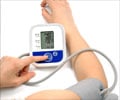
‘The peptide isolated from beetroot has effects that can do wonders. This peptide can be useful in treating inflammatory, neurodegenerative, and autoimmune disorders. It can also be used in the management of hypertension, diabetes and cancer related with fatigue. ’
Tweet it Now
Few other studies have shown cost effectiveness and improved glycemic control in diabetic patients, insulin homeostasis, help in controlling blood pressure and improve the renal function. This peptide was not only found in the root but also found in the commercially available beetroot juice. The study also throws light on the fact that consuming increased quantities of beetroot may not help in the prevention of the disorders.
The active chemical in the beetroot plant acts as a defense system and protects the plant against attacks by pests. It acts as a protease inhibitor as it inhibits an enzyme that digests proteins, thus preventing the breakdown of protein.
Therefore the beetroot protein may be beneficial in the management of inflammatory & neurodegenerative disorders like multiple sclerosis & Alzheimer’s disease where there is breakdown of protein tissue.
Antioxidant Property in Beetroot
Advertisement
The blood pressure lowering effect is more significant in hypertensive patients as compared to that of the normotensive patients.
Advertisement
Beetroot also has some minor effects on the natural microbial flora in the human body. Though the effect is minimal, this should be neglected. For e.g. it can alter the salivary microbiome.
Beetroot and Cancer Related Fatigue
Beetroot is also used in relieving cancer related fatigue in children & exercise related fatigue. Cancer related fatigue is the most common factor that leads to inactivity in children, thus decreasing their physical activity.
Physical activity interventions will help in reducing the fatigue and improve the quality of life. To achieve this there are various adjuvant methods, but in the current scenario beetroot juice is gaining popularity.
The most important point that has to be noted is beetroot contains oxalic acid, hence excessive intake of beetroot should be avoided in patients with kidney diseases. Oxalic acid acts a metal ion chelator and forms complexes that may lead to nephroliths (small stones or deposits in the kidney).
Source-Medindia















